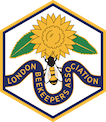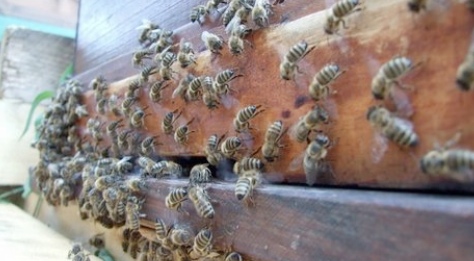
|
London Beekeepers' Association |

|
London Beekeepers' Association |
Siting hives
In such a built-up city as London, beekeepers have a special responsibilities to their bees, the public, themselves and fellow beekeepers. Deciding where to keep your bees requires some thought if your bees are to thrive and not be a nuisance to others.
A suitable site should be secure, easily accessible to the beekeeper, have enough space to move safely around your hives and enough storage space. It should not cause a nuisance to others. Ensure that the flight path that bees will use does not cross busy public areas, too close to neighbours' houses or across parts gardens that they use regularly. A fence can help raise the flight path bees will use. Consult your neighbours and find out if they any have allergies. Many people are interested in bees, so involve them with your beekeeping if they are curious. You might even keep them sweet with the odd jar of honey. Sites need to suitable to bees too. They need easy access to forage and sources of water in summer. Early morning sun will help increase the period over which bees forage. Sites should be sheltered from the wind and hives shouldn't be under trees where water will drip onto the hives. We strongly discourage siting bees on high rooftops. Bees will waste energy flying to these heights and high winds make these sites unsuitable. Vibrations caused by air conditioning units can also be problematic. If you intend to keep bees in a public place such as allotments, community gardens, schools or parks then we urge you to have experience to the level of BBKA Basic and have a risk assessment of your site done. Remember that you will need to inspect your bees at least every week during the months during the swarming season between April and July. For more information, we recommend BBKA guidance documents: Bees, Neighbours and Siting an Apiary and Allotment Beekeeping. |
©2024 London Beekeepers' Association |